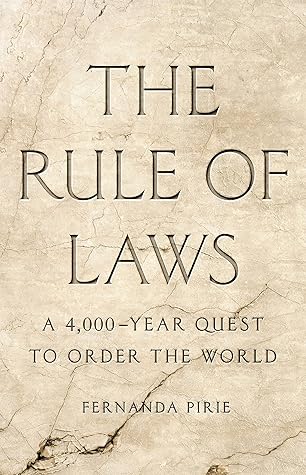An ordeal, conducted and interpreted by a member of the clergy, took the process beyond their control and weakened the authority of the judges. But it provided an answer where the evidence was genuinely contradictory or inconclusive, particularly if it involved an event that had allegedly happened in private, such as a sexual crime, a clandestine theft, or a surreptitious murder. Even more importantly, it allowed judges to avoid taking responsibility for what was a deeply problematic process, sitting in judgement on their fellow men and women.
Welcome back. Just a moment while we sign you in to your Goodreads account.


